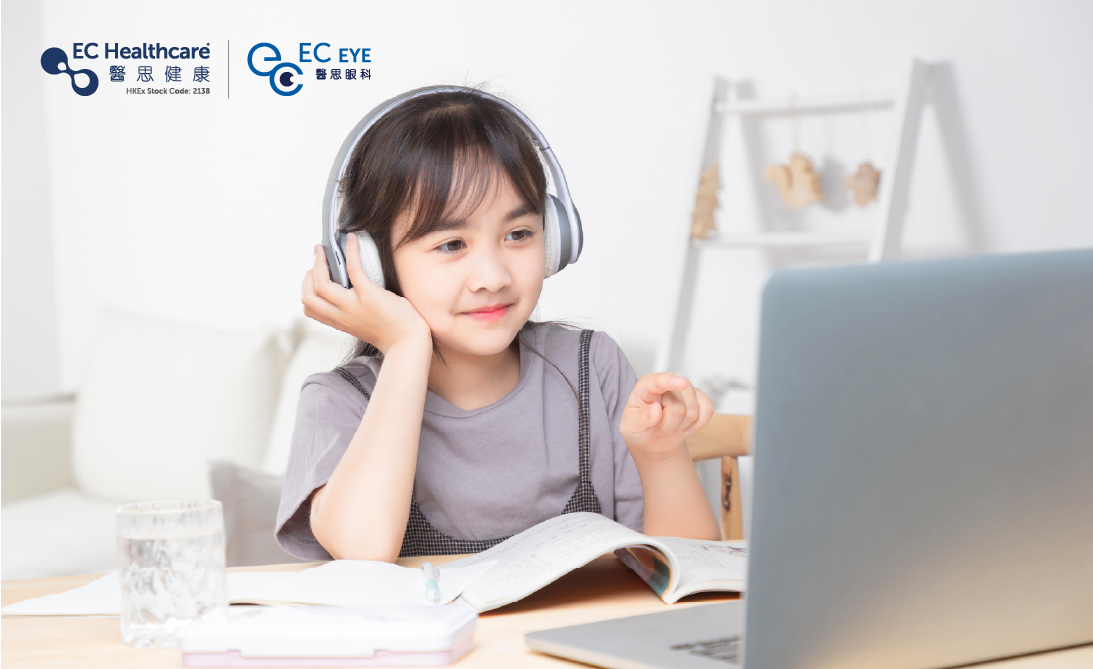Protect Your Eyes with the "20-20-20 Rule"


Eyes are the windows to the soul, and in today's digital age, constant screen time can lead to dryness, eye strain, and even an increased risk of eye conditions like dry eyes. So, how can we protect these precious windows? Here are 7 eye care tips to help children and adults maintain good vision and alleviate eye fatigue.
1. The "20-20-20 Rule"
In the vast world of the internet, with its abundance of information, it's easy to lose track of time while consuming that content. Prolonged use of electronic devices increases the risk of developing myopia. To combat this, it's recommended to take a break every 20 minutes and shift your gaze to a distant object at least 20 feet away, focusing on it for a minimum of 20 seconds. This simple practice helps alleviate eye fatigue.
2. Control the Distance between Your Eyes and Screens
To focus on objects at close distances, your eye muscles have to work harder. If the ciliary muscles remain constantly strained, it can lead to dryness and gradually affect their ability to adjust. Therefore, when reading or using a mobile phone, it's advisable to maintain a certain distance. Keep your eyes at least 30 cm away from books or screens. For tablet use, maintain a distance of 40 cm, and when using a computer, a minimum distance of 50 cm is recommended.
3. Avoid Prolonged Screen Time
In general, spending more than 2 hours continuously staring at electronic screens can lead to discomforting symptoms of computer vision syndrome, such as dry eyes, blurred vision, and shoulder and neck pain. It can also worsen myopia. For individuals aged 2 to 18 years and adults, it's advisable to take regular breaks from electronic screens or books, rotate your eyeballs, or gaze into the distance to relax your eye muscles and adjust focal distance. Moreover, children under the age of 2 should avoid using electronic devices to prevent any potential impact on their vision.
4. Avoid Using Electronic Devices in Low Light Conditions
In low light conditions, the pupil dilates, making it easier for the blue light emitted by electronic screens to enter the macula of the eye. Prolonged and continuous exposure of the macula to such stimulation can lead to premature vision deterioration, macular degeneration, macular hemorrhage, glaucoma, and other irreversible eye conditions. When using electronic devices, ensure that the ambient lighting is neither too bright nor too dim. Adjust the screen brightness and font size to a level that feels comfortable for your eyes.
5. Consciously Blink
Blinking is the simplest and most effective way to keep your eyes moist and refreshed. When we read or use electronic devices, our blinking frequency significantly decreases due to heightened concentration, resulting in reduced tear production and dryness. To combat this, try to blink every few lines or approximately every minute while reading or using electronic devices. You can even close your eyes and rotate your eyeballs to maintain surface moisture and provide proper relaxation.
6. Wear Sunglasses in Intense Sunlight
The ultraviolet (UV) rays in sunlight carry immense energy that can harm the lens and macula of the eye. Short-term exposure to intense sunlight can cause corneal or conjunctival inflammation, while prolonged accumulation can lead to age-related macular degeneration, cataracts, pterygium, and more. Therefore, when facing intense sunlight, it's advisable to wear sunglasses that effectively block UV rays, sunlight, and glare (reflected light from surfaces like water or the ground) to minimize damage to the eyes.
7. Regular Eye Examinations
Regular eye examinations play a crucial role in early detection of eye disorders, preventing permanent vision loss. An eye specialist can provide advice and eye care measures based on the examination results. It is recommended that children aged 4 to 18 undergo at least one eye examination per year, while individuals aged 18 and above should have an eye examination every 2 years.








